|
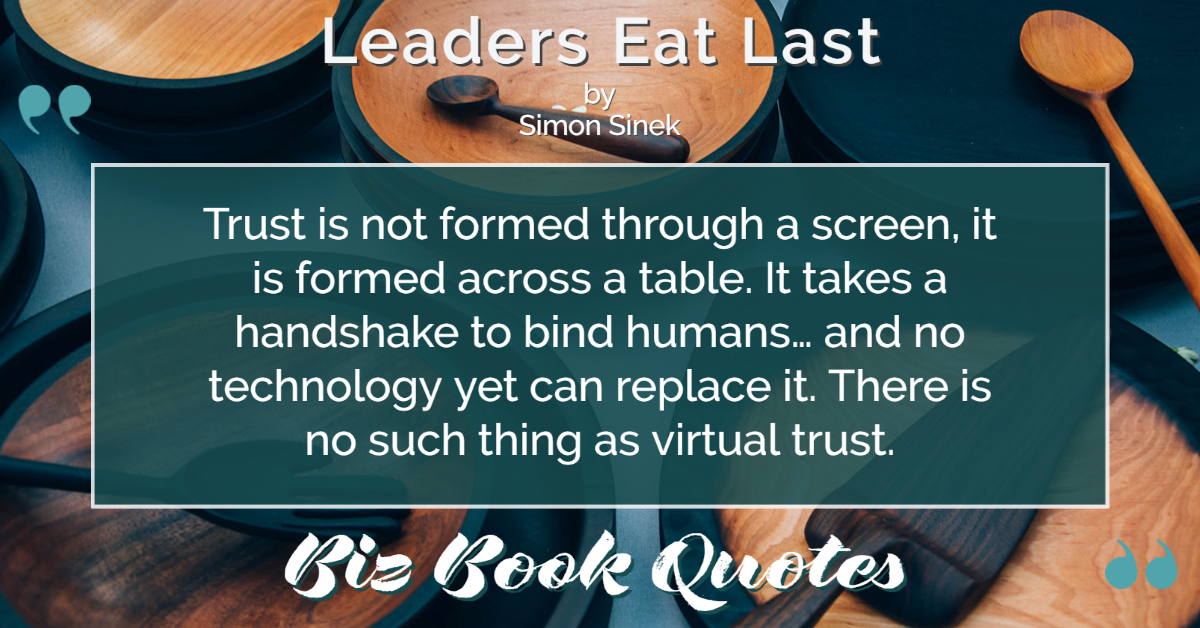
|
Leaders Eat Last:
Trust is not formed through a screen, it is formed across a table. It takes a handshake to bind humans… and no technology yet can replace it. There is no such thing as virtual trust.
|
140 |
|
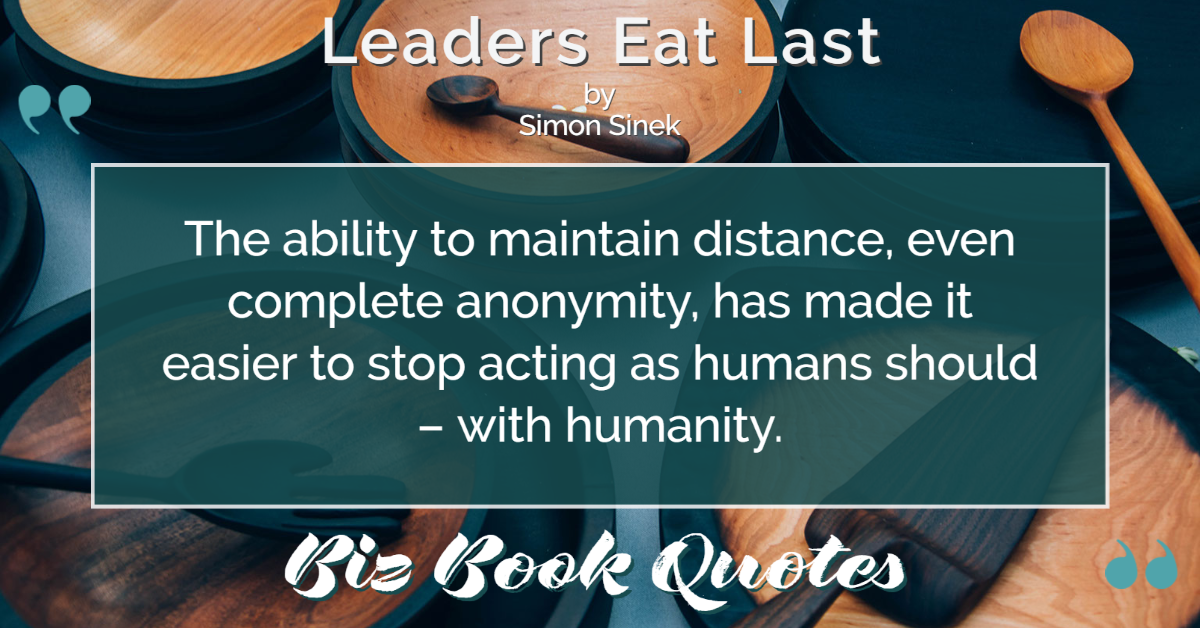
|
Leaders Eat Last:
The ability to maintain distance, even complete anonymity, has made it easier to stop acting as humans should – with humanity.
|
140 |
|
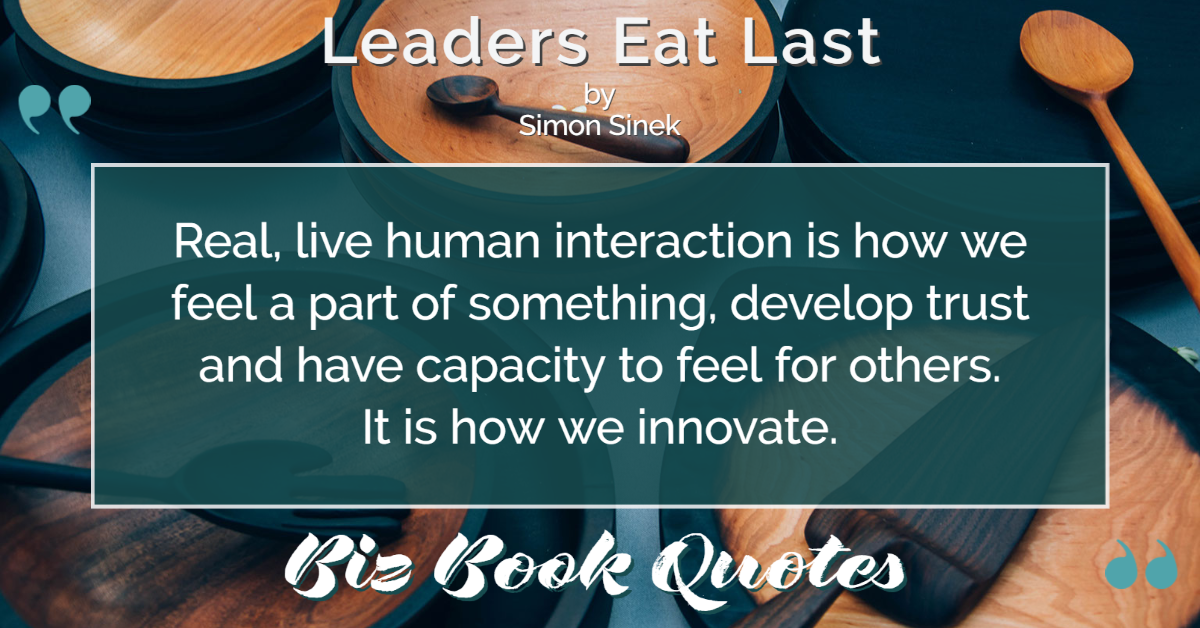
|
Leaders Eat Last:
Real, live human interaction is how we feel a part of something, develop trust and have capacity to feel for others. It is how we innovate.
|
141 |
|
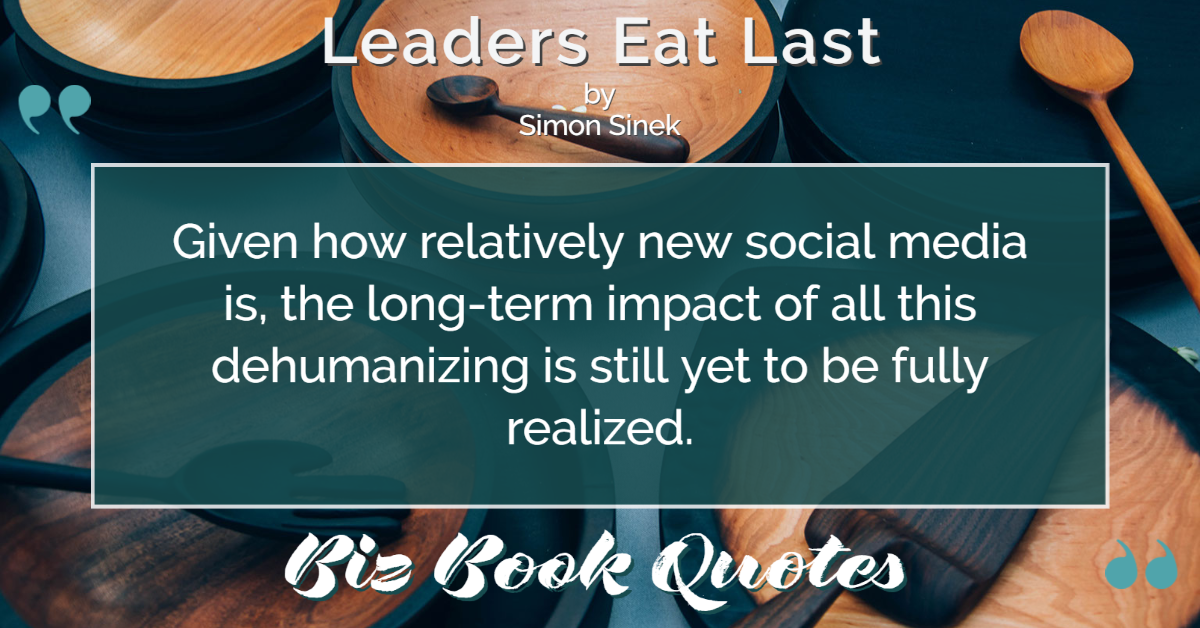
|
Leaders Eat Last:
Given how relatively new social media is, the long-term impact of all this dehumanizing is still yet to be fully realized.
|
141 |
|
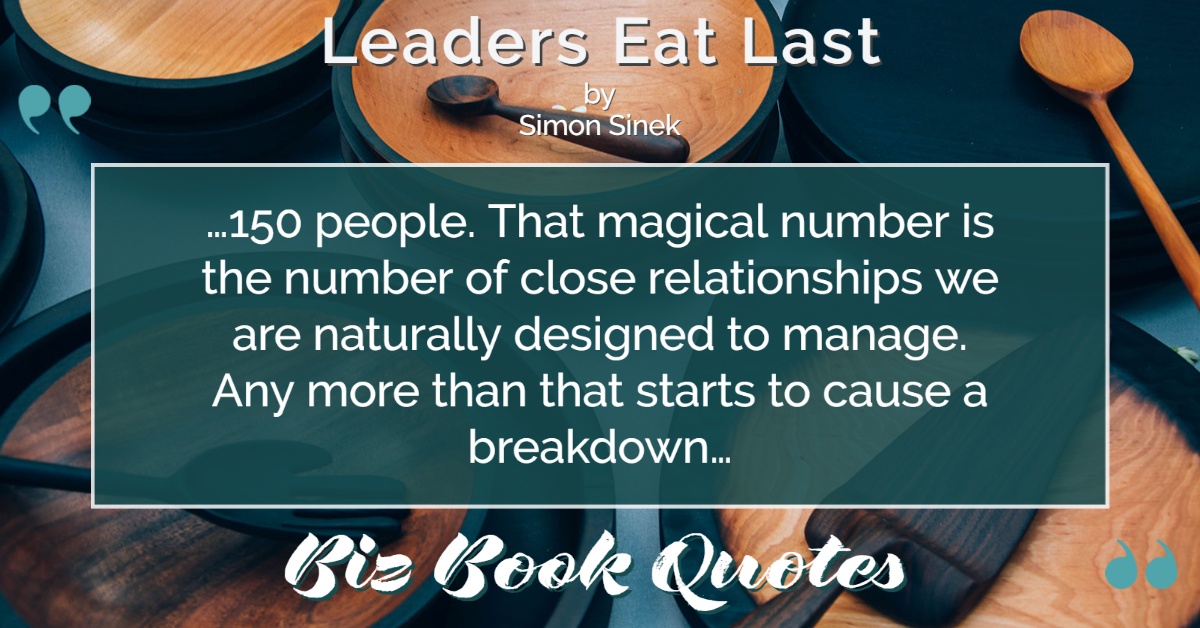
|
Leaders Eat Last:
…150 people. That magical number is the number of close relationships we are naturally designed to manage. Any more than that starts to cause a breakdown…
|
143 |
|
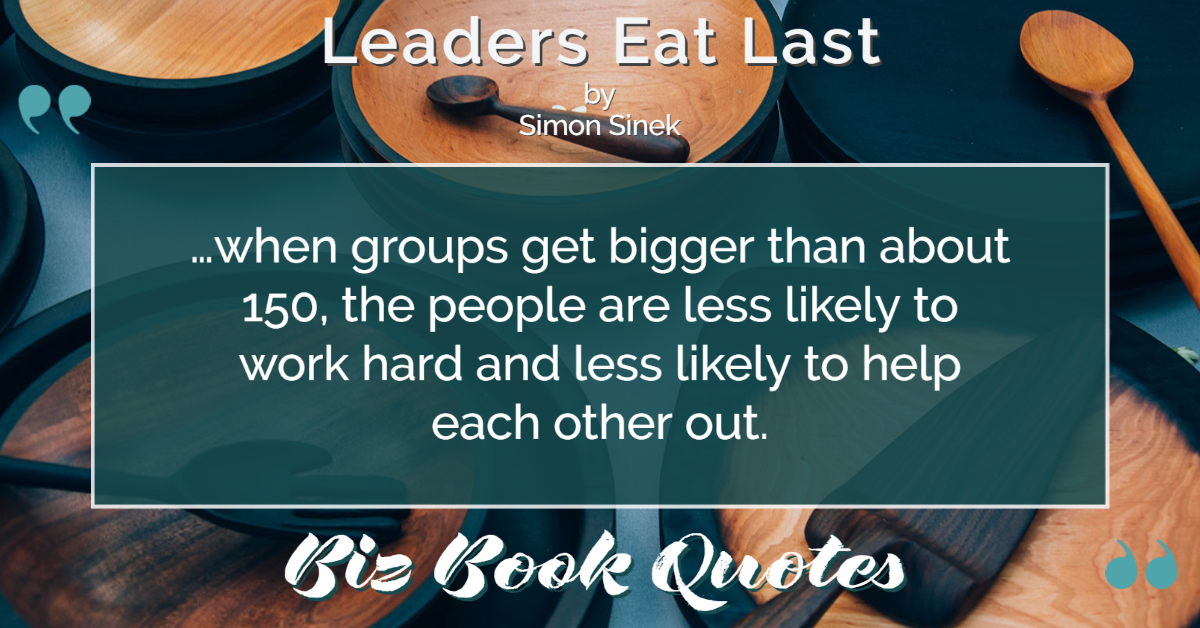
|
Leaders Eat Last:
…when groups get bigger than about 150, the people are less likely to work hard and less likely to help each other out.
|
143 |
|
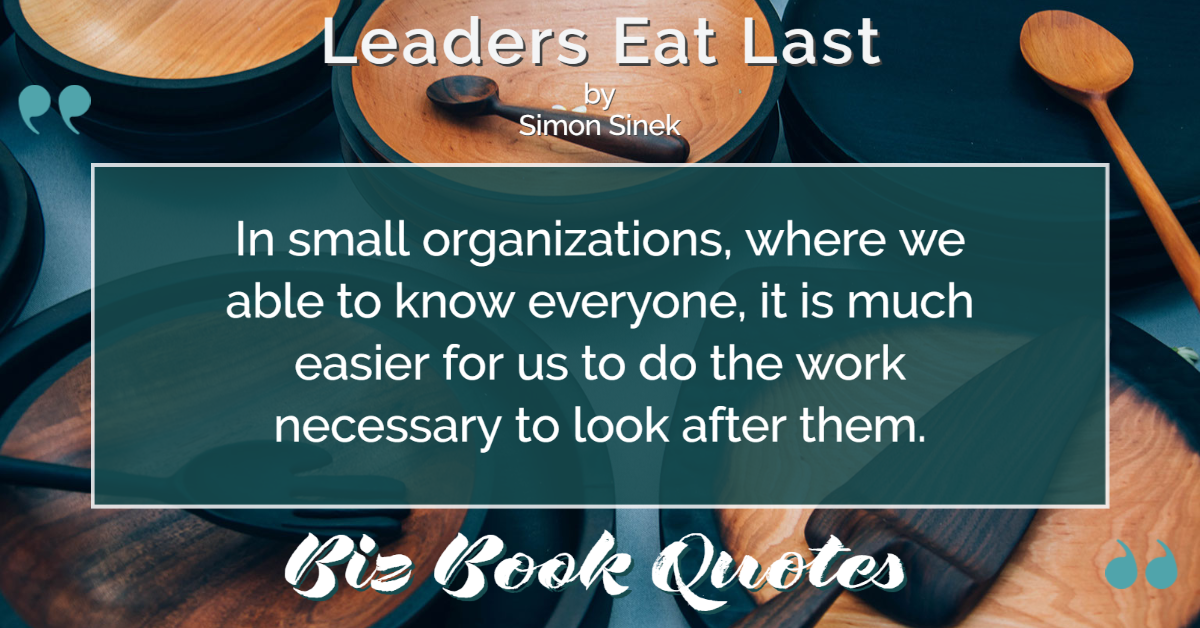
|
Leaders Eat Last:
In small organizations, where we able to know everyone, it is much easier for us to do the work necessary to look after them.
|
144 |
|
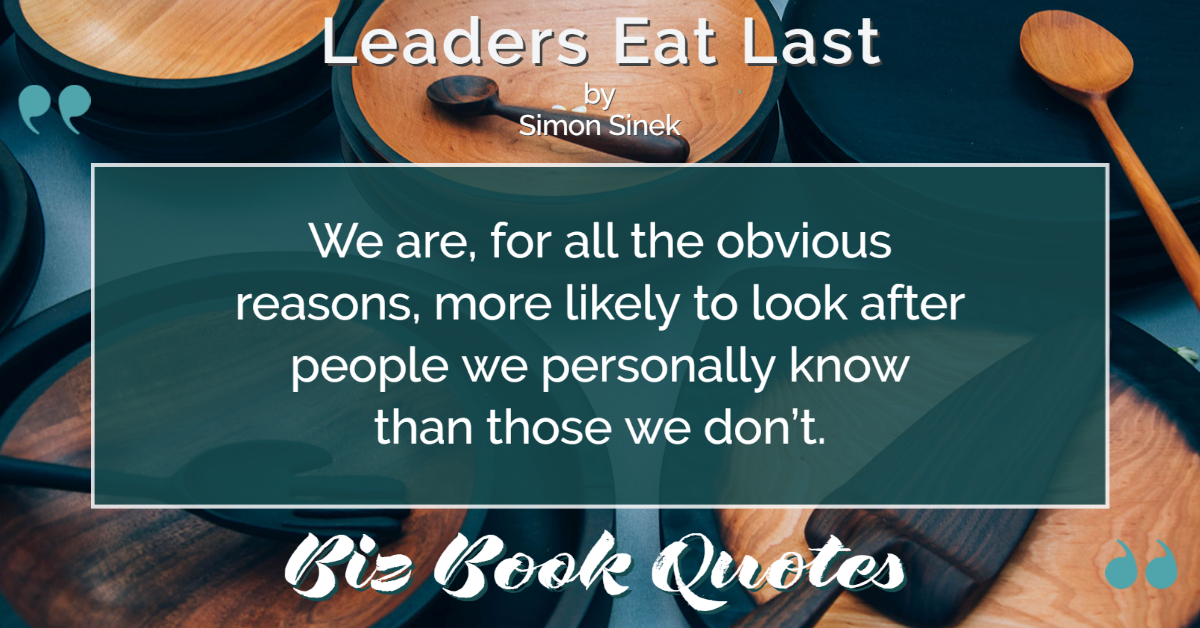
|
Leaders Eat Last:
We are, for all the obvious reasons, more likely to look after people we personally know than those we don’t.
|
144 |
|
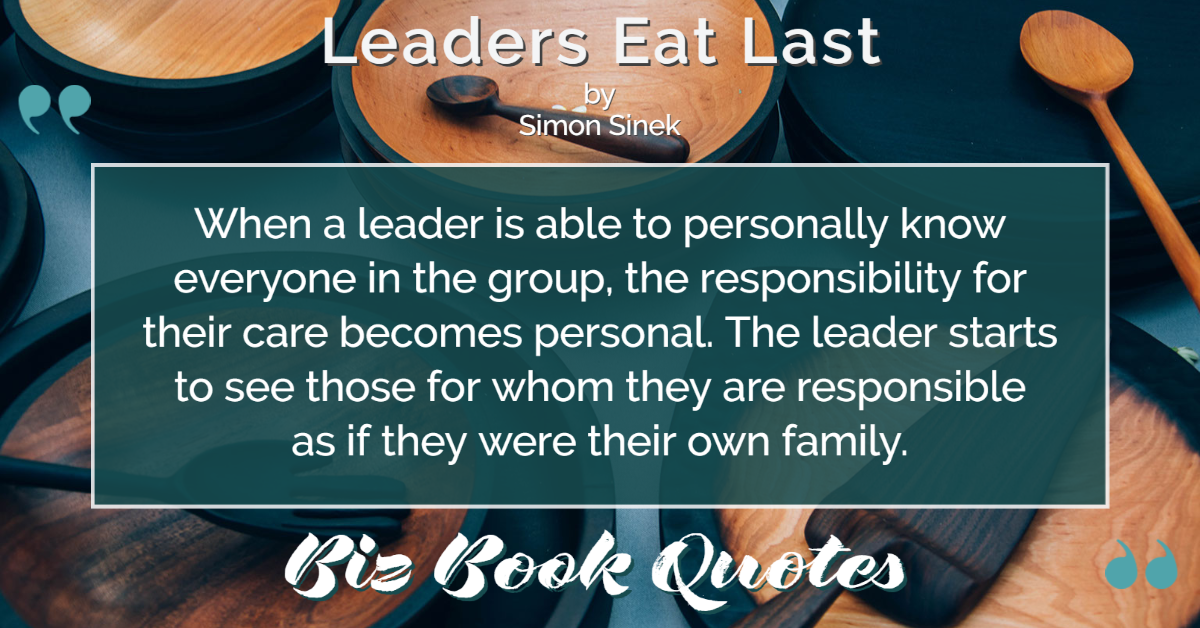
|
Leaders Eat Last:
When a leader is able to personally know everyone in the group, the responsibility for their care becomes personal. The leader starts to see those for whom they are responsible as if they were their own family.
|
144 |
|
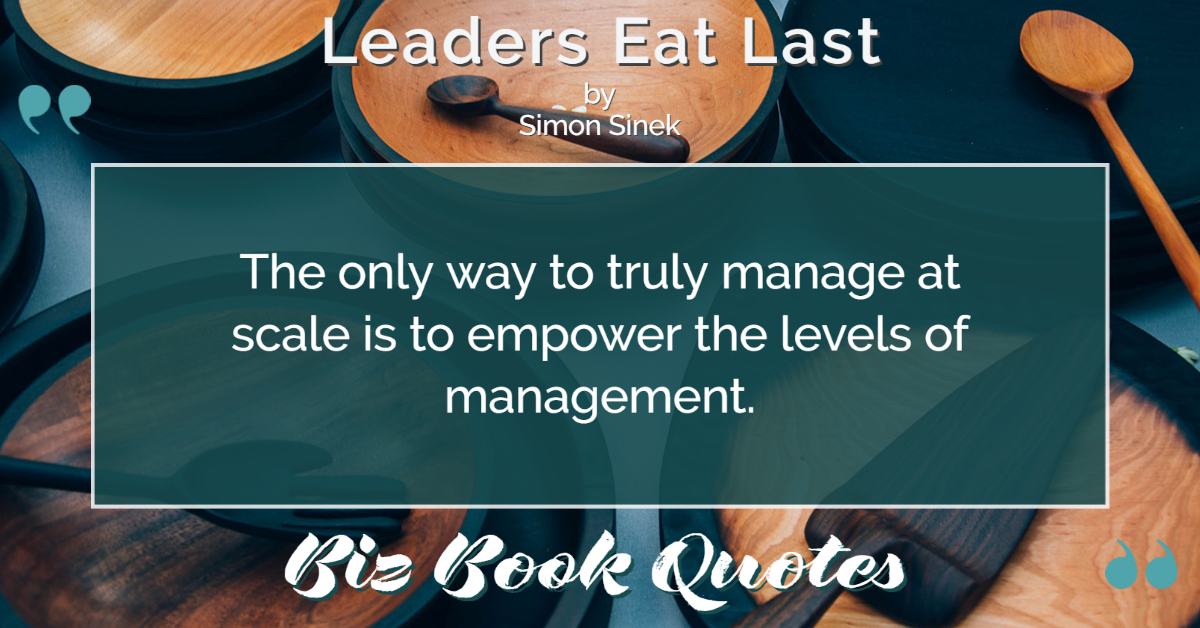
|
Leaders Eat Last:
The only way to truly manage at scale is to empower the levels of management.
|
145 |











